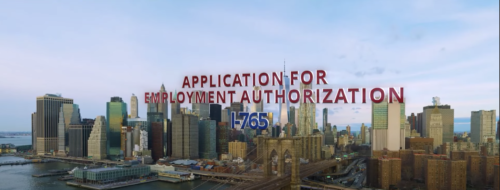
International students that come to the United States on an F-1 visa do so in part because they can qualify for optional professional training (OPT). That gives them a year—and up to two additional years if they’re in the science, technology, engineering or math fields—of valuable experience, and it opens the door to possible work opportunities in the States after graduation if they can find employers willing to sponsor them for green cards or H-1B visas.
The Trump administration tried to limit all forms of immigration in the last four years, and it and its allies worked their magic with international students as well. Students on F-1 visas that applied to the Texas Service Center for renewals found that they received neither receipts or approvals for in some cases more than 11 weeks, and because of those delays, job offers were rescinded. Many applicants found themselves unsure of how to proceed, perhaps out of status despite having followed the processes correctly and in a timely manner. Eighteen students finally sued USCIS and Immigration and Customs Enforcement (ICE) on February 16, 2021 to have their applications processed in a timely manner.
Late last week, United States Citizenship and Immigration Services (USCIS) effectively conceded the issue and “flexibilities,” according to a press release, were granted “for certain foreign students affected by delayed receipt notices.” Those flexibilities will go to international students whose applications were received by USCIS between October 1, 2020 and May 1, 2021.
The affected students may
Applications that were rejected form missing or deficient signatures will, however, remain rejected.
The Trump administration generally believed that OPT and foreign nationals in the American workforce were taking jobs from American workers. Most studies have shown the opposite to be true, according to Forbes’ Stuart Anderson.
“A University of Maryland-Business Roundtable study concluded restricting OPT would cost jobs,”he wrote. “‘A total of 443,000 jobs would be lost in the economy by 2028, resulting in 255,000 fewer positions for native-born workers,’ concluded the study. ‘The modeled results echo myriad prior studies illustrating that employment in the United States is not a zero-sum game.’”
International students concerned that they have been affected by this situation should consult with an experienced immigration attorney to see what this decision on the part of USCIS means for them, and how they can best position themselves for the future.
Are you having legal issues with Immigration? Do you need legal representation?